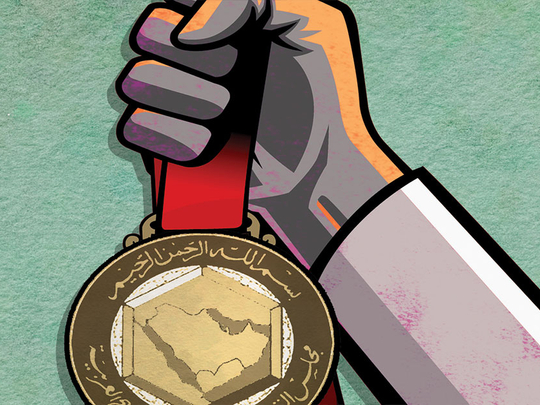
Gulf Cooperation Council (GCC) countries have achieved tremendous growth in the last few decades. From barren deserts have risen many oases of cities, skyscrapers and industries. Growth is a dynamic process and many cultures within the GCC have recognised the importance of key performance indicators that contribute to this success. One such player is the culture of sports.
The UAE, for example, promotes an inclusive environment that integrates all segments of society while preserving the UAE’s unique culture, heritage and traditions and reinforces social and family cohesion. Its national agenda pursues the course of making the UAE ‘among the best in the world in the Human Development Index and to be the happiest of all nations’ and also sets an ambitious plan to increase the UAE’s performance and medals won on the international sporting stages, including the Olympic Games. The UAE recently advanced to the semi-finals of the Asian Cup, a football event that pitted the top football-playing nations of Asia and Australia against each other. I have no doubt that their medals tally will improve in the 2016 Olympics, given the nation’s foresight and collective will.
The Saudis, on the other hand, a powerhouse in the Asia Cup earlier, failed to advance beyond the first stage of the competition. In the previous Olympics, they had managed only one bronze medal. This would have been excusable had the budget allocated to its sporting authorities been meagre or if the nation lacked infrastructure and resources. But that is not the case.
George T. Will, an American writer, had once said that “sports serves society by providing vivid examples of excellence”. Sports teaches us most of what needs to function productively and serve our nations better. Why? Because with participation there is improved physical, mental and emotional health and well-being. Sports also promote teamwork, leadership, motivation, fair play and a host of other positive values that could only benefit any nation.
Some Saudis, however, feel there is not enough national emphasis given to the promotion of sports and that is why Saudis fail on the world stage. A Saudi psychologist listed several reasons, including the absence of a culture of sport and concepts. He also lamented that “our schools have no ability to discover athletic potential and nurture it. There is a lack of proper training. There is a biased perception about women’s participation in sport, ignoring the fact that it is reflected on the health of any community. And finally, there is a lack of qualified clubs that [could] sponsor these competitors from school level to [becoming] world class athletes”.
M.A. from Jeddah says: “Because it is considered a waste of time to invest in luxury activities like sports, professional training, and good education, we fare poorly.”
R.H. states: “The Arab world is full of youth who would be real gold medallists if only sports is given the attention it deserves. Europeans, Americans and Far Eastern countries put a lot of resources into training athletes, unlike our countries. Sports teaches children leadership, teamwork, discipline and pride. Such characteristics are neither developed in our children in schools nor afterwards in life. Sports is looked at as a win-or-lose event and not as a teaching medium or a character-development tool or for the development of society. I have experienced this first-hand as a swimming coach. I coached children who had great potential to become national-level swimmers and compete at international events. Locally, they were not given the attention or opportunity they deserved. One of these children went to study in the US and was picked by his university swim team. He went on to break many high-school records during his four years of study. Unfortunately, our Youth Sports Commission totally ignored his achievements.”
Appropriate age
Z.A. says: “Participation in international sports requires tremendous practice and needs to be started at a very early age when the windows of opportunities are open for children. Sporting activities need to be started at the appropriate age. Unfortunately, what we do is spoil our children by getting them entertained at malls, theme parks and by giving them unhealthy fast foods. Our schools do not provide proper environments. Schools have only a few physical activities as entertainment and some physical exercises.
A.M. adds: “It’s the same old problem. Pouring all the money and resources into football. Even then, our results are nothing to write home about. Another issue is the officials who are in charge. They are more concerned about the prestige of being members of certain federations and committees and are happy to show up at international events — more than the athletes themselves! Most of them never possessed any kind of athletic skill.”
Given such a situation, the road to the finish line or to the top of the medals podium is not an easy one and it depends on several factors. Saudi Arabia does not lack resources, but does it have a national agenda or a collective will to excel in sports? The 2016 Olympic Games are just around the corner.
Credit: Tariq A. Al Maeena is a Saudi socio-political commentator. He lives in Jeddah, Saudi Arabia.









